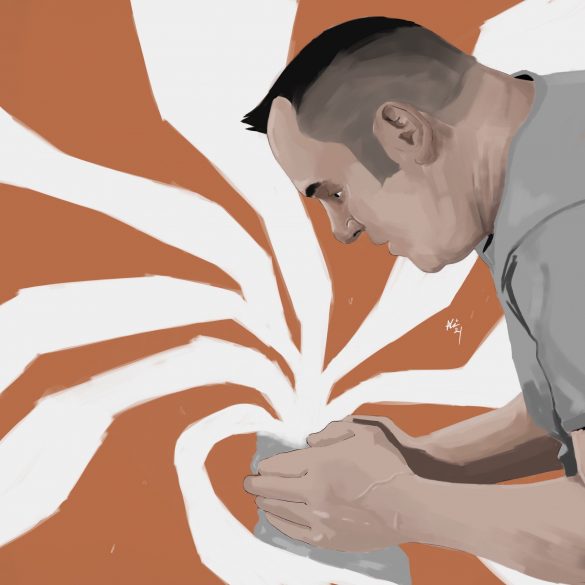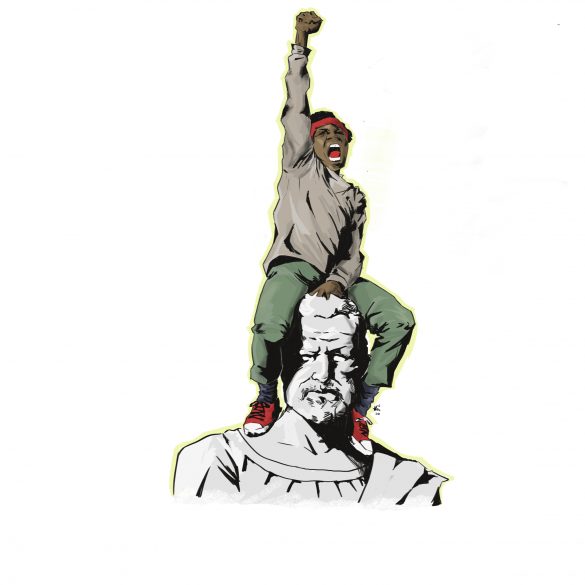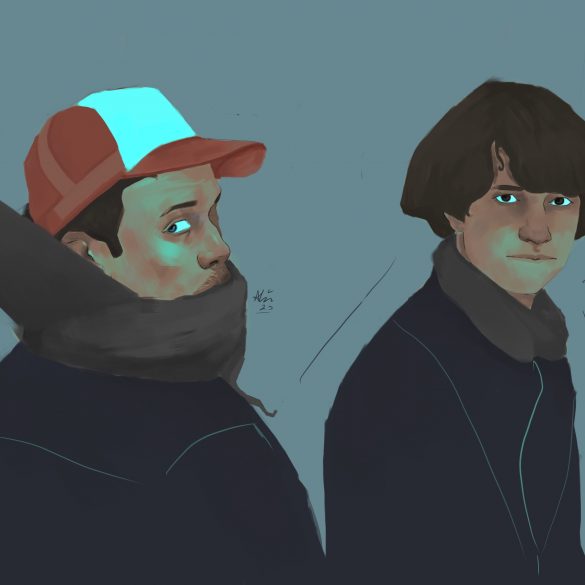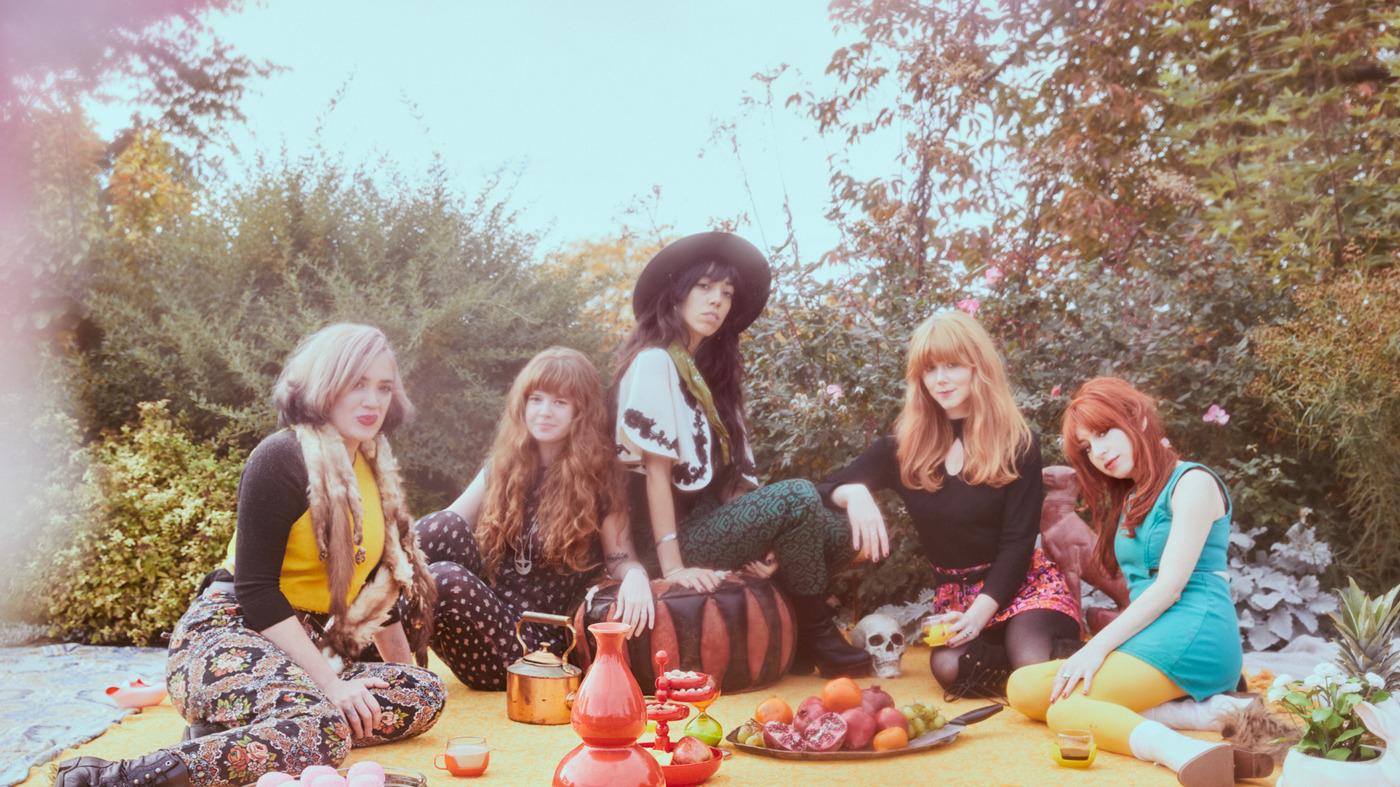Habibi
Album: Anywhere But Here
Release Date: 2020
USA
Brooklyn five-piece Habibi haven’t stopped pushing boundaries since 2011 when vocalist Rahill Jamalifard and guitarist/vocalist Lenny Lynch started fusing Iranian music with ’60s girl-group harmonies and psych-rock riffs. The pair have resurrected the first song they wrote together, “Come My Habibi,” a mesmerizing slice of Middle Eastern-inspired surf-psych-garage bliss, to serve as the lead single off their forthcoming record, Anywhere But Here. Sung in both English and Farsi, it comes complete with a breakdown that includes celebratory ululations. [AdHoc]
I have to start with a couple of questions you must have been asked a bunch of times before. How did you land on an Arabic name and how did that affect your band’s identity?
I grew up in Detroit and a huge majority of my friends were of Syrian and Lebanese descent. When I would go over to their houses, “habibi” and “habibti” were common terms. Later when I traveled to Egypt and Turkey in my early 20’s, I also heard this lovely term of endearment floating around.
Fast forward to 2010 when Rahill and I met and we started writing songs together, we had some other names for the band – (including Evil Eyes!)- but Habibi was the one that stuck and felt good to everyone in the band right away.
Rahill is Iranian and grew up outside of Detroit. She also grew up with Arabic speaking friends and “habibi” was a common expression used.
We have never second guessed our name since the beginning of the band. We bonded over being mesmerized by Turkish and Iranian psych/folk music and we wanted those themes (also of Rahill’s heritage) to be present in our own songs.

Photo: Bailey Robb 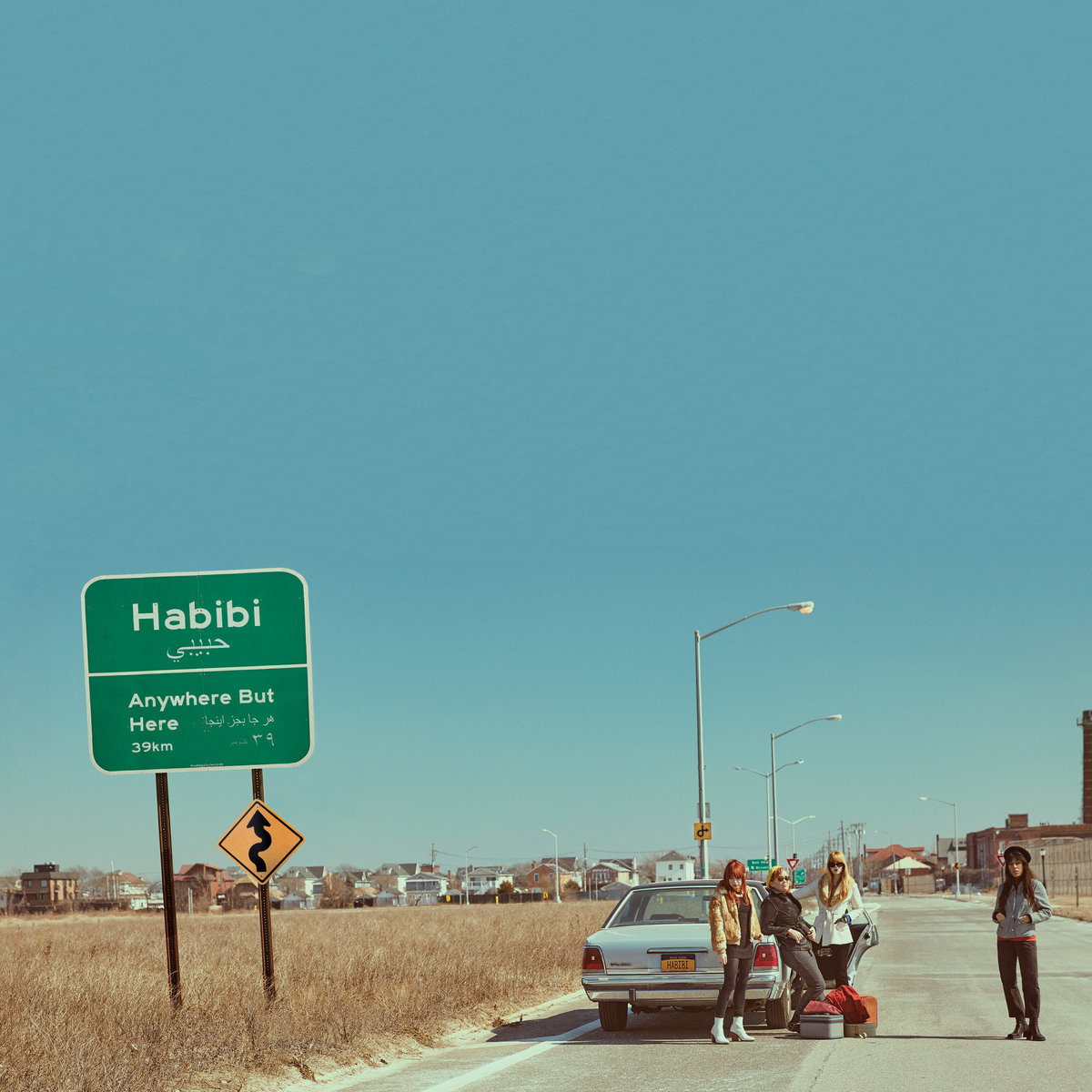
Album cover: Anywhere But Here 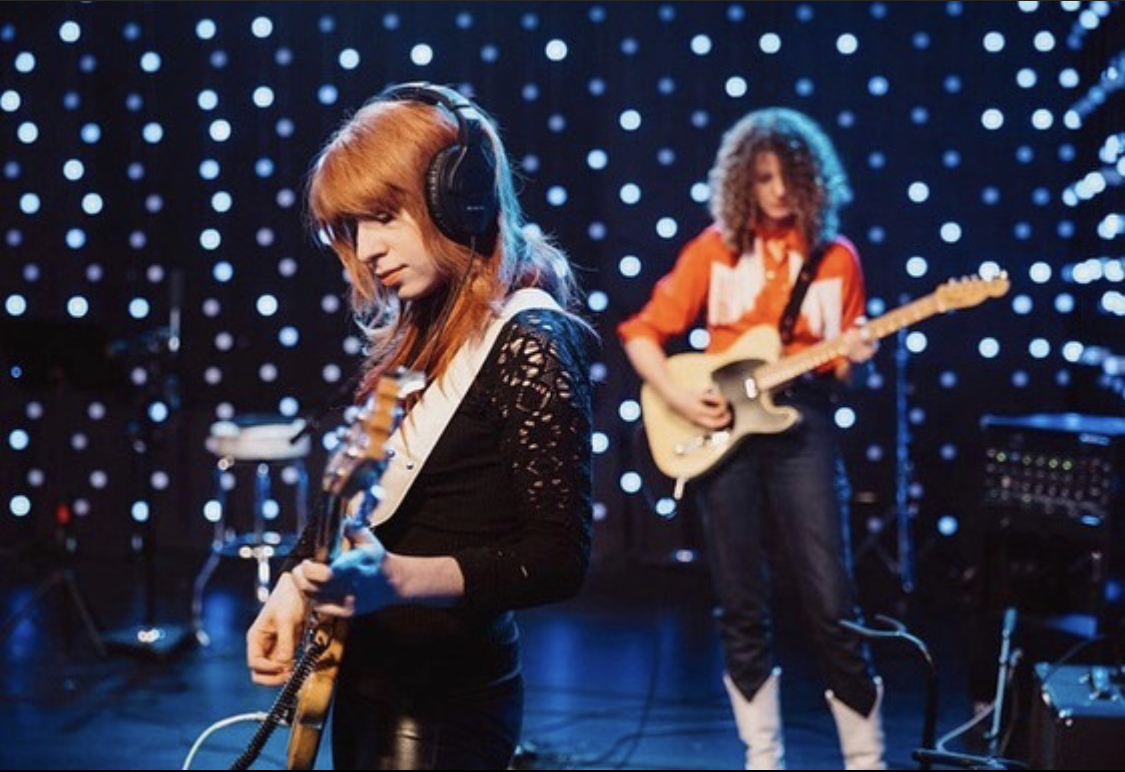
Photo: Eric Tra 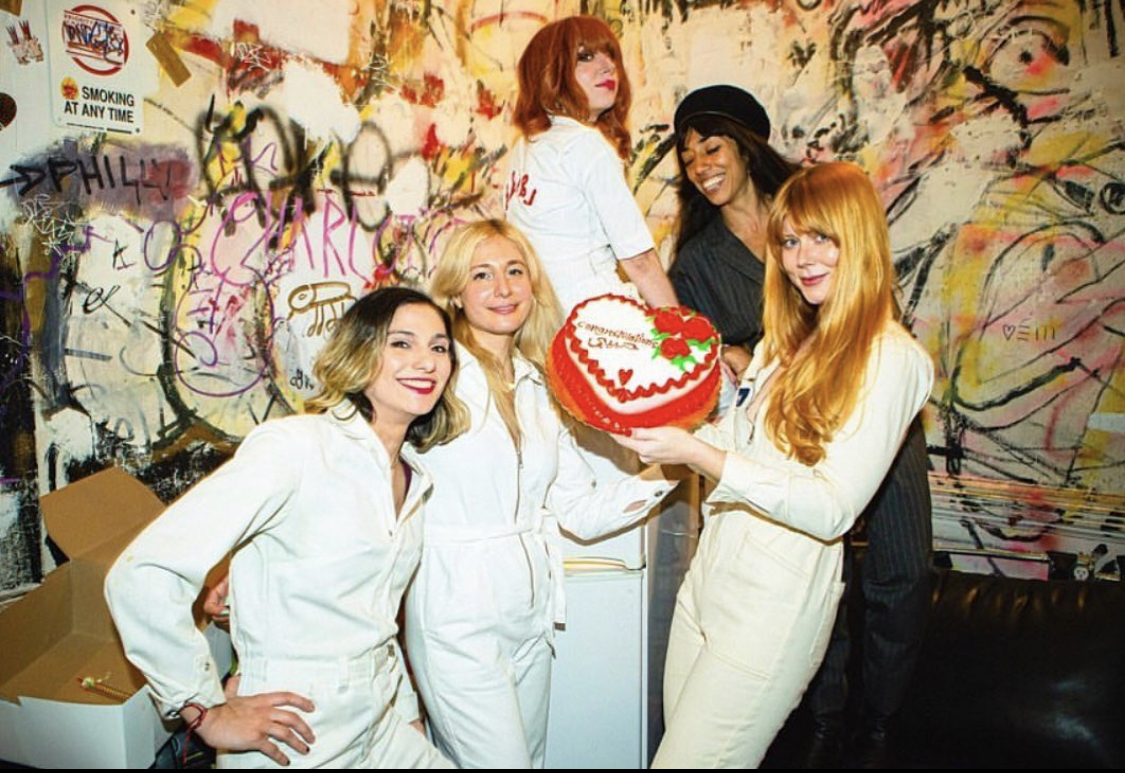
Photo: Rolling Stone
I know that ‘the culture’ was a big impact on even how you met and formed the band. What does ‘showing the culture’ mean for you in your music? Is that a big motivation for you all, or no?
Rahill sings in Farsi and tells stories of her family or references Persian poetry in certain songs. On the last album, we had a tombak player and ney player and I played an electric sitar which was very exciting for me!
It’s very crucial to us that people hear our music or come to the shows and feel this freedom of identity. In the US, we all come from different races, countries and backgrounds and yet we can still feel this pressure to conform to what is “American”. There’s still lots of ignorance and xenophobia in the world but when a young girl listens to our music and feels more empowered to be herself, it gives us motivation to keep rockin!
What are your inspirations on your music? Also, will you please give us a couple of your Middle Eastern influences? (I was born in Turkey myself so really curious)
So many things! We definitely all geek out on music together. It runs the range from old country to disco, Zambian rock to Bollywood. Huge direct influences are Lee Hazelwood, ESG, Suzi Quatro, Dick Dale, and Motown.
We have a lot of Turkish and Iranian heroes such as Kourosh Yaghmaie, whom we cover sometimes, Erkin Koray, Esmeray, Googoosh, Cem Karaca, Selda Bagcan, The Rebels, Kamuran Akkor, Mogollar… we can’t get enough!
Do you also follow more recent stuff from the region?
I haven’t heard too many newer artists from there but would love to hear! I’ve been listening to a lot of newer music from Algeria lately but if you have any recommendations of new Turkish, let us know.
Have you ever played in the Middle East? Where would be a place you would love to play the most?
We haven’t!! We would love to. Istanbul is one of my favorite cities so that tops the list.
Also congratulations on your new album, Anywhere But Here. Some say that the second albums are always the hardest. How did the making of it go for you?
The making of Anywhere But Here came together pretty seamlessly. We had been back on the road together so we got the creative juices flowing and it felt amazing to be back in the studio with the girls after all those years! We had half the songs already cooking and we just had to flesh them out and then the other half coalesced in the relaxed environment of the studio. We recorded everything at XL studios and it was like being a kid in a candy store with lots of ideas and instruments to play with.
What does the title mean if you can tell us more about that?
Escapism! We had definitely felt unsettled and uncomfortable for the last couple of years dealing with things like personal heartbreak and a world spiraling into turmoil. We didn’t even have a clue a global pandemic was just around the corner! However tough this last year has been though, I’m glad that the songs are resonating with people and they can find some escape in music.
It came out at such a strange time right before the pandemic. How has it been for you this year? How are you all spending your time if you’re not working on new music?
This year was very strange! We had a lot of tours lined up that were cancelled which was sad. We wanted to be able to play all the new songs for people. Fortunately though, we found a remote place to get together safely when we could and we did record some new tunes that will be out this spring on Kill Rock Stars. We are focusing on making more music until we can finally start playing again.
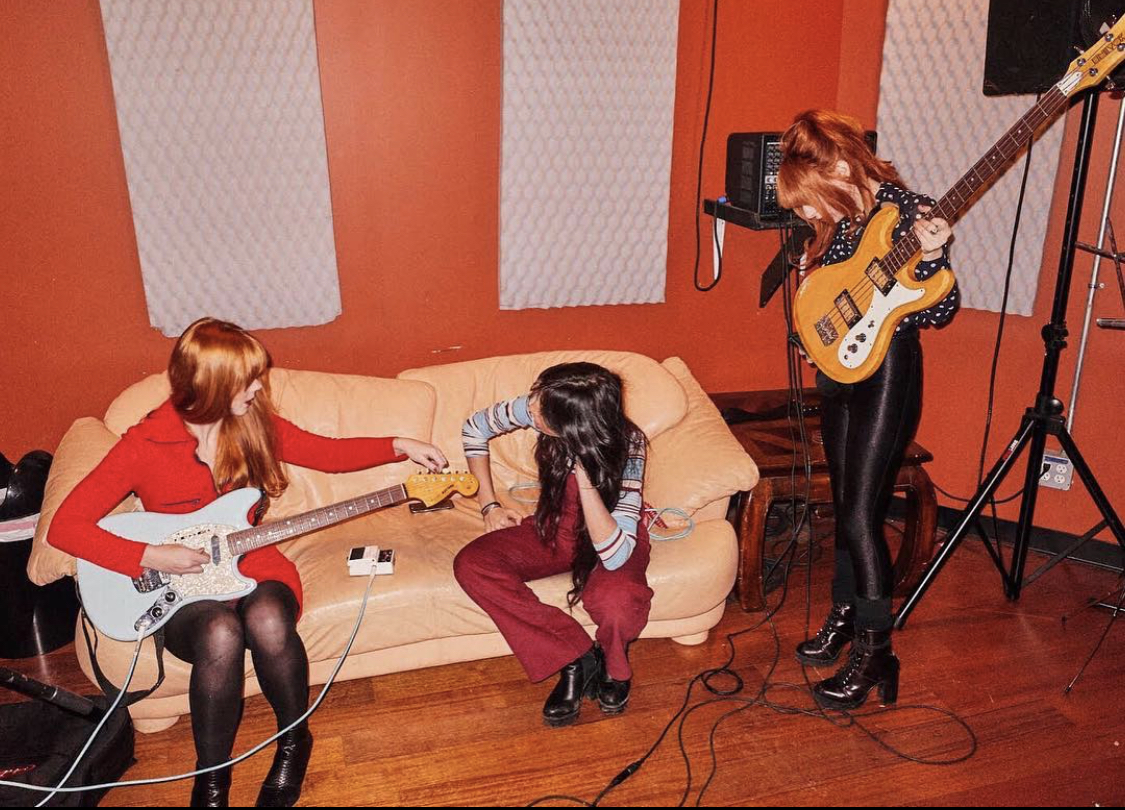
Photo: Brayden Olson 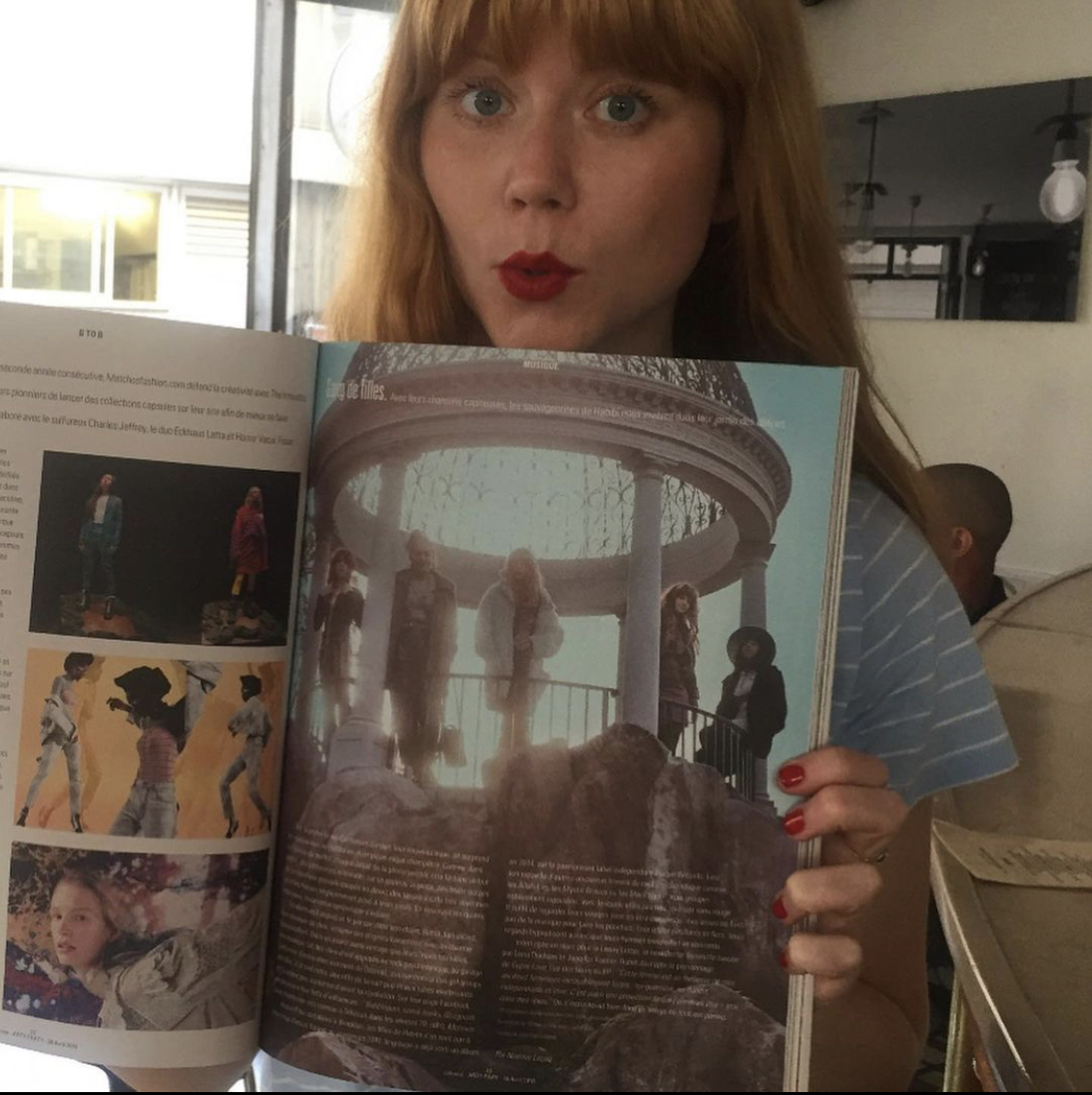

Photo: Eric Tra 
Here comes the most important question for our series. Will you tell us about our loop song, Come My Habibi? I know it’s a revisit but how did that song come about? What is it about and what is its significance for you?
This is the first song I shared with Rahill when we met but we ended up working on other songs like Sweetest Talk and I Got the Moves and so Come My Habibi was never finished because it didn’t seem to fit anywhere on the first album. Rahill never gave up on it though. Years later, on our last day in the studio for recording Anywhere But Here, we went in with the unfinished song not knowing if anything would really happen with it. It was one of those .. just hit the record button and see if it comes together.. type of songs. It turned out amazing because of the energy and unstructured noise of it all.
I wrote just that one line “come my habibi” after a trip to Egypt when I was 24. Rahill wrote the rest and then we had our Arabic speaking friend sing the ululation. It’s the surprise ending to the album’s story.
You re-released a video for I Got the Moves a couple of months ago. Are you working on a new video these days?
That video is actually from 2014 but we had to re-upload a lot of our media since Burger Records shut down last summer. We need to make some more videos!! We are going to try and safely get on that this spring.
I find your sound very cinematic, too. Do you have any projects in that regard?
We are film buffs too and what I miss most this year besides playing shows is going to the movies. We don’t have any projects like that but we would jump at the chance!
[vc_toggle title=”Lyrics: Come My Habibi”] Come, my habibi Come to me, my love Used to be my baby Now you are gone Come, my habibi Come to me, my love Used to be my baby Now you are gone Now you are gone Come, my habibi Come to me, my love Ashk az cheshmam bordi Yadet shod roya Come, my habibi Come to me, my love Ashk az cheshmam bordi Yadet shod roya Yadet shod roya [Instrumental] Come, my habibi Come to me, my love Used to be my baby Now you are gone Come, my habibi Come to me, my love Used to be my baby Now you are gone Come, my habibi Come to me, my love Used to be my baby Now you are gone Come, my habibi Come to me, my love Used to be my baby Now you are gone Come, my habibi Come to me, my love Used to be my baby Now you are gone [/vc_toggle][vc_toggle title=”Tracklist: Anywhere But Here”] 1. “Angel Eyes” 2. “Bad News” 3. “Flowers” 4. “Born Too Late” 5. “Stronghold” 6. “Dragging Me Down“ 7. “Mountain Song“ 8. “In the City“ 9. “Misunderstood” 10. “Hate Everyone But You” 11. “Come My Habibi” [/vc_toggle]